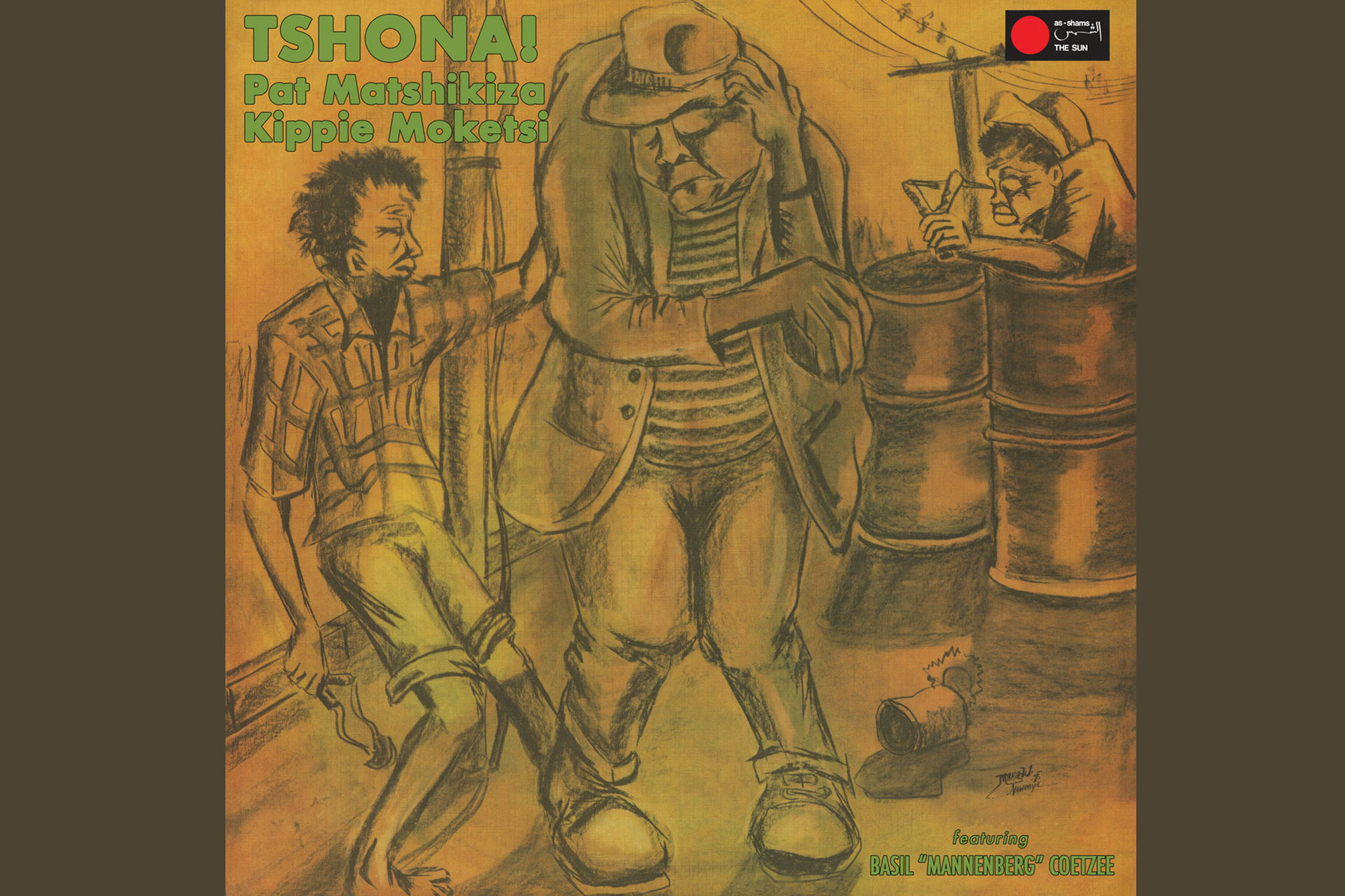The spirit of ‘Tshona!’ endures
Pat Matshikiza and Kippie Moeketsi’s four-track project got to the heart of the 1970s’ defiance that produced it, appealing to listeners of popular music and jazz.
Author:
28 April 2022

Some South African tunes will live forever because they perfectly capture a moment and its spirit. Winston Mankunku’s Yakhal’ Inkomo spoke wordlessly to all who heard it of the pain of oppression. Hugh Masekela’s Stimela/Coal Train was written from far away, but reconnected through the horn man’s heart with the migrant miners from across Africa whose sweat built South Africa. Sakhile’s Isililo was shaped by hindsight to lament and praise the youth of Soweto who fell on 16 June 1976 but whose heroism changed their world. Dollar Brand and Basil Coetzee’s Mannenberg (Is Where It’s Happening) brought the innovative creativity of its time – pop and jazz – together so beautifully that it almost instantly became, especially for rebellious Capetonians, a new, unofficial national anthem.
In the wake of Mannenberg, a rather different album appeared that brought together popular and jazz ideas. It was also instantly taken to the hearts of its hearers. It didn’t have the international reputation of Dollar Brand (Abdullah Ibrahim) to leverage reprints off, and after its initial pressing run the LP disappeared, only briefly reappearing in the 1980s. But Tshona!, featuring Coetzee and saxophone legend Kippie Moeketsi, was just as fiercely loved, with old, scratched copies jealously preserved in families for decades. The track also became, as Ben Pretorius (who founded the historic Rainbow venue in Durban) noted, “a defiant shout-out against the injustices of the system”.
Related article:
Now Tshona! is out on vinyl again, the result of a collaboration between the As-Shams label and Canadian indy We Are Busy Bodies, offering today’s listeners a chance to understand why.
Tshona! takes some of its deliberately retro, jangly piano tone from the sound that made Mannenberg so distinctive. But the brain behind the piano hands is the very different Pat Matshikiza, and the album was the concept of Moeketsi, also musing about whether he could cut a track that would speak to both popular music and jazz listeners. Matshikiza composed two of the four songs, including the title track, and Moeketsi the others.
Where Dollar Brand had looked to the fashions of his time and bump jive for his popular elements, Moeketsi looked back further to marabi roots, reflecting the proud nationalism that infused his personal politics even as he was winning fame as a master of American-style jazz.
Free and fine hands
Queenstown-born Matshikiza called on the jigsaw juxtaposition that patterned both the historic musics of the Eastern Cape and its modern jazz. On the title track, Moeketsi added a second altoist, Dennis Phillips, to create a bigger sound. And for pop appeal, he signed up two young stablemates from the As-Shams label, currently cresting a wave of popularity for their work with teen group The Beaters: drummer Sipho “Hotstix” Mabuse and bassist Om Alec Khaoli.
Label boss Rashid Vally says that was typical of how his label liked to work. “We always liked to give local jazzmen a free hand to do their thing when they had a new idea.”
For the two youngsters, it was a baptism of fire. “Kippie looked at us very suspiciously at first,” Mabuse remembers. “After all, we were just laaities – kids – from a pop band. We were quite in awe too. But after we all played, he came over, smiling, to congratulate us.”
Tshona!’s cover art, by Mafa Ngwenya, shows a befuddled elderly drinker, who has just dropped his homebrew can beside the brewing drums, staggering into an ambush from two teenagers armed with catapults. The image declares the music’s history in marabi’s backyard tents, and is one of multiple plays on the title word, for tshona in isiXhosa can mean both to sink (as the soused drinker is doing) and also, in the phrase “tshona emxholweni!”, to “get with it!” (“Wake up, grandpa!”) and to “get down!”, as Matshikiza regularly calls to his co-players.
Related article:
In the mid-1970s, youngsters in the high schools were starting to urge their elders to understand what was happening around them, a movement that culminated in 16 June, one year after Tshona! appeared. The multiple metaphorical layers of the title exhort listeners to both wake up (socially) and get down (musically).
It works. Back in the day, Tshona! used to be a favourite of community jazz dancers (the diga crews), with the tricky phrasing of the second track, Stop and Start, particularly inviting to fancy footwork from two-tone Florsheim shoes.
But the music has heart as well as smarts. That’s particularly true of the closing track, a three-and-a-half minute duo jewel from Moeketsi and Matshikiza called Kippie’s Prayer. We tend to think of the saxophonist as a thrilling, precipice-walking improviser. Kippie’s Prayer, though, is a gently paced, heartfelt melody, a simple prayer that searches beyond the harsh, oppressive mid-1970s to the beauty that could be.
Like Yakhal’ Inkomo, Stimela, Isililo and Mannenberg, even if you hadn’t heard it before, Tshona! is one of those South African recordings you’ll feel you’ve known all your life. It’s one you won’t forget again.


